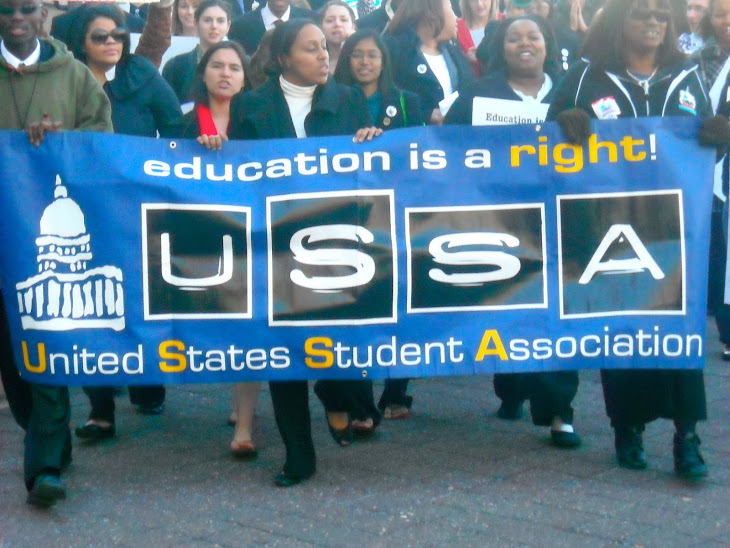There are a precious few moments when we have the opportunity to remake our national identity. Like the students who audaciously advanced civil rights in times of mindless violence, or the youth who rebuilt a nation devastated by the Great Depression, we now stand at the crux of fundamental change. It is in the midst of great upheaval that we are given the chance to define ourselves by the manner in which we respond to the immense challenges of the day. Higher education is the defining issue of our generation because on it relies the leaders and innovators on which all other fields of vital importance depend. We therefore have a responsibility to keep open the college doors for all.
Education is a right because everyone deserves the chance to reach their potential, regardless of income, identity, or citizenship. If people are allowed to pursue the best of themselves unrestrained by cost or frivolous restrictions, then society will benefit from their success. Accordingly, it is in the best interest of the government to enact policies that look beyond election cycles and slogans and invest in students.
The goal of making education a right is within our grasp. President Barack Obama has made it his administration’s goal to have the United States produce more college graduates than any other country by 2020. For this to happen, we, as students, must change the tone of higher education policy. Almost every state has balanced its budget by slashing higher education funding, raising tuition, and introducing more or higher fees. These policies are indicative of a political landscape in which higher education is viewed as little more than a bloated discretionary budget with distant payoffs, and students as perpetual revenue streams. While politically expedient, these policies are fiscally irresponsible in the long-run because they deny states the immense revenue generated by the higher taxable income and commercial spending of college graduates. Beyond that, the moral depravity of forcing students and families into severe debt paying for a public interest that should be a public responsibility is repulsive.
In Pittsburgh, Mayor Luke Ravenstahl has proposed a one percent tax on the “privilege of getting a higher education.” Under this plan, a Pennsylvanian undergraduate at the University of Pittsburgh would pay an additional 350 dollars a year simply because he or she chose to go to college. In New Mexico, Governor Bill Richardson signed a bill cutting 68 million dollars from the state’s College Affordability Fund. The governor did not cut funding for an off-roading safety program. The enormous tuition hikes in California prompted students at Berkeley to hold a mock funeral for the death of public education for minorities on the Day of the Dead. Elected officials may campaign on promises of change, hope, and the progress of underrepresented communities, but the recession has forced them to stand by their true priorities. Few are standing with students.
Our best chance for reforming higher education is in the U.S. Senate. In September, the House of Representatives passed the Student Aid and Fiscal Responsibility Act (HR 3221). This bill remedied the underlying flaw of the student loan industry by ending government subsidies to banks that offer federal student loans and allocating the estimated 87 billion dollars in savings into student-friendly financial aid programs. Despite commitments to prioritize higher education in the Senate, there has been no consideration of a companion bill. Young people have been demanding student aid reform decades. Regardless of how close we are to this historic measure, it will not come to fruition without the involvement of students.
States and localities have utterly failed to preserve college access and affordability amidst tough economic times. President Obama is ready to step up and sign a comprehensive student aid reform bill. We have a unique opportunity to take an unprecedented step forward in higher education. But the moment is brief and our leadership is required.
A college education should be a fundamental right not only because it makes economic sense, but because it is a moral imperative. As students, once again it is in our hands that the direction of the United States rests. We cannot let the tides of possibility recede between our fingers, too much is at stake. Write a letter to your senator urging student aid reform, submit an opinion editorial or letter-to-the-editor, sign up for news updates, or simply donate to the cause. Whatever the size of your contribution, you can be a part of the next great movement to make education a right!

No comments:
Post a Comment